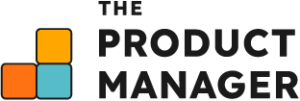The world is steadily moving toward the digitization of every industry, niche, and micro-problem. Product management is at the center of this transformation. This change is best put by co-founder of Andreessen Horowitz or a16z, a prominent venture capital firm in Silicon Valley, Marc Andreessen: “software is eating the world.”
Careers in product management have also been growing rapidly, with an average salary of $110,916 USD and rated 4th best job in the United States. According to the popular SaaS tool ProductBoard, we’re now entering the “Golden Age of Product Management.”
Beyond the typical product manager roles which may require some depth of industry knowledge, there is another differentiator for product management positions. Technical product management vs traditional product management. But, you may ask yourself: “Do I need technical skills or past experience in software development to land a PM role or to become a successful technical product manager?”
Many technical product managers hold degrees in computer science, have attended a Bootcamp in software development, or are self-taught software developers. As an aspiring product manager, a traditional background in software engineering is not always required to be a successful product manager. My background was in economics and I am a self-taught software developer. Later, I made the transition to product management. There are many paths to becoming a technical product manager.
Coming from a traditional computer science background could also hinder you at times. You tend to get caught up in development or engineering problems and lose focus from other more critical responsibilities.
A good technical PM stays high-level enough to prioritize and manage the roadmap without getting in the weeds. But, as you design prototypes and build products as a technical product manager, you’ll have the uncanny ability to go deep, know-how intricate details of the front-end and back-end work, and get closer to having a realistic roadmap and product vision, not to mention, better prioritization of technical issues. These nuances can help you go from a good product manager to a great product manager.
Even if you don’t come from a traditional computer science background, you can leverage a variety of other solutions for your career path to build your competencies. This will build trust with the software engineers and data science engineers in your organization.
In short, there are many different approaches to ”skin the cat” in your career paths within product management. Whether you have little to no product management experience, are new to the technical skills, need to buff up to get a job in technical product management, or make your LinkedIn stand out, there are a plethora of routes and approaches. So let’s jump in!
- A Guide To The Product Manager Career Path + Roles And Skills
- 2021 Average Product Manager Salary And Career Guide
1. Online Courses
As a product manager with no experience or technical skills, it’s important to learn the technical lingo and develop an elementary background in coding. This will help you better understand how to communicate with engineers and become a more successful product manager. Not to mention, it will help you shine in your current job during agile and scrum activities, such as writing epics and user stories, sprint planning, and backlog refinement. An understanding of coding fundamentals will strengthen all agile and scrum activities as a PM.
Learning how to communicate better does not mean you need to know how to write code yourself. However, you should be able to become a translator between technical and non-technical teammates to ensure clarity with product requirements for customers, such as data ingestion, APIs, and other technical features.
A great way to approach learning technical lingo and mastering some elementary coding skills is through online courses.
- Learn SQL so you can do data analysis and better understand and measure metrics
- DataCamp has an SQL course that is perfect for starting out
- Learn HTML and JavaScript so you can better communicate with front-end engineers and improve your product strategy and user experience
- FreeCodeCamp has a great program for beginners on front-end and back-end or CodeAcademy for HTML basics
- Learn about APIs so you can understand the life cycle of your product from all aspects of the software development lifecycle
- Learn the basic methodologies about DevOps so you understand how code is hosted and deployed
By learning these skills and the technical lingo, you can earn more respect from the engineers on your team and improve your strategic thinking skills. This strengthens your position in your product role and will make you a more successful product manager and build the best product possible with your team.
2. Technical Product Management Certification
Becoming a technical product manager does differ from a traditional product manager. Taking a course in technical product management can help bridge the gap between business skills and technical skills/lingo. Product Management Head Quarters or PMHQ has a wonderful One Week Technical PM course you can get started with.
3. Attend Hackathons And Meetups
You might be thinking, can I attend a hackathon as somebody that isn’t technical? Of course. Be the product advocate for your team, pitch the vision, and help keep your team focused. This will strengthen your leadership skills and make you a shoe-in for hiring managers. It shows you can lead a technical team as a product manager.
This is also a great route if you’re breaking into a PM role for the first time. A great way to find hackathons is to search for “MY CITY + hackathon” on Google or look for meetups around startups, SaaS, or popular coding languages such as JavaScript, Python, Ruby, and others in your city.
4. Side Projects
If you already have experience as a product manager but want to get into technical product management, a great way is to build a new product, a micro SaaS, or a one-man startup.
Ideally, choose a side project you can work on during evenings and weekends, where you can hone your technical skills. If you are coming with no experience, this is especially useful when combined with online courses. You can even find a software engineer to work with, but don’t just focus on product strategy, get into the technical details if you really want to improve your technical product management skills.
As an entrepreneur and self-taught software engineer / technical product manager, I’ve created several SaaS side projects & startups over the years.

5. Shadow A Technical Product Manager
One way to gain technical product management skills is to find a small startup that’s in need of additional help in the product team. Ideally a technical product manager or product owner you can assist as a volunteer or intern in exchange for working alongside them and learning.
This will allow you to improve your technical problem-solving skills, work with development teams on their product roadmap, and get into the weeds with agile, scrum, sprints, backlog refinement, and the nitty-gritty methodologies needed to run a startup and get a full-time PM job. Check out Indie Hackers to find some great startups and founders.
Related Read: How To Create A Product Roadmap: 6 Important Components
Why Should You Develop A Technical Background?
Taking steps toward developing a technical background will help you in a number of ways:
- Better estimate how long a user story or epic will take. Having a technical understanding will allow you to have more informed discussions with customers and stakeholders
- Improve customer support as you will better understand your product from both a business and technical perspective
- Understand various approaches to technical problems that come up
- Explore areas in your product that could be affected by a technical decision, and what the implications of these could be
Conclusion
One of the most important takeaways here is to never stop learning. Always be evolving so you can constantly refine your product vision and become not just a good, but a great product manager. It’s a lifetime journey.
If you have any other tips, approaches, courses, or blogs you think readers can consume to become a technical product manager without technical experience, please tell us in the comments below, and don’t forget to subscribe to The Product Manager newsletter!
Related Read: Product Manager In Digital Transformation: How To Make It Work


